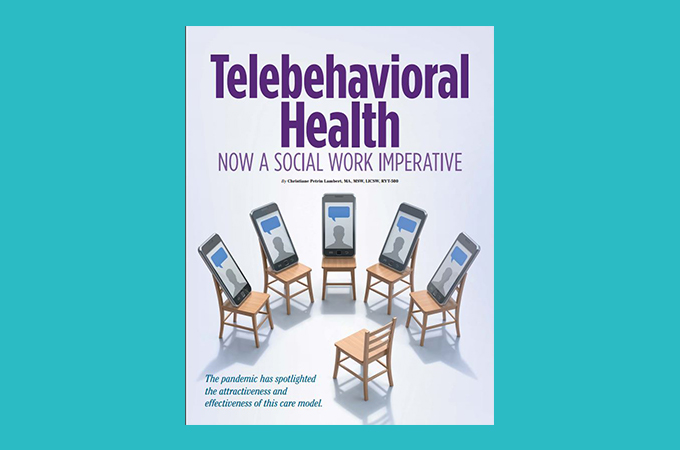
In a recent article about the electronic practice of social work, Social Work Today offers a look at many sides of the model it calls telebehavioral health. Practice mobility shares the spotlight with ways that social work education programs and continuing education providers are filling the need for training and ethical concerns resulting from electronic practice.
The sudden shift to electronic practice at the beginning of the public health emergency early in 2020 was partially eased when jurisdictions created emergency policies. “Practicing clinical social work across state lines, termed social work practice mobility by the Association of Social Work Boards (ASWB),” author Christiane Petrin Lambert writes, “has required being licensed in multiple states. However, through executive order, many states have relaxed jurisdictional barriers and allowed temporary licenses to practice during the pandemic.”
The social work education community, along with providers of continuing education, have helped build competence in electronic practice. One ASWB Approved Continuing Education provider, the Telebehavioral Health Institute, has seen an exponential increase in training requests. TBHI’s executive director, Marlene Maheu, says the pandemic led to “a planetary focus that galvanized everyone around telehealth.”
While delivering social work services electronically may feel different from in-person practice, ethical requirements do not change. An important resource for social workers is the NASW, ASWB, CSWE, & CSWA Standards for Technology in Social Work Practice. Among the ethical considerations the article lists are using HIPAA-compliant technology solutions, establishing boundaries with clients, and putting a client crisis plan in place.
Read more about the increase in the electronic practice of social work in Telebehavioral Health: Now a Social Work Imperative.